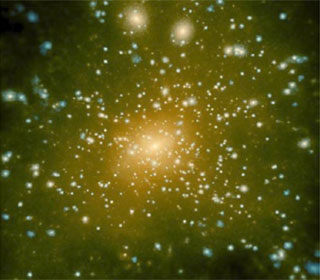Over the last two decades, cosmology has entered the era of "precision cosmology.” Cosmology has matured as a field due to the enormous experimental progress and turned into a mature, empirically grounded physical science. This development is accelerating with ever more and better astronomical, cosmological, and particle physics data coming up.
Space-based telescopes, the Cosmic Microwave Background, and gravitational wave astronomy have opened new windows to the cosmos and to the earliest times in the evolution of the universe. At the same time, new particle physics experiments at the biggest labs on the continents, like CERN in Geneva, are testing our models of particle physics at higher precision, energies, and smaller scales than ever before. Since the universe began in a small physical state of high energy density, these findings have important implications for our understanding of cosmology.
The upcoming cosmology and particle physics experiments are thus designed to provide new data to enlighten us about the origin and nature of dark matter, dark energy, and our universe itself. How these different components of our universe fit into fundamental unified microscopic descriptions of our universe is an open question. Breakthroughs leading to possible answers will come in a feedback loop between theory and data. You can read more about our research here.
Bridging many areas of physics, from particle physics over statistical mechanics and thermodynamics, quantum physics, and gravity to astronomy, particle cosmology is a genuinely interdisciplinary endeavor bridging fields of different academic histories and cultures.
Particle Cosmology
